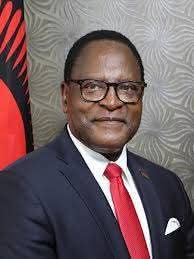By Burnett Munthali
As Malawi edges closer to the September 16, 2025, general elections, the ruling Malawi Congress Party (MCP) finds itself in an increasingly precarious position. Once buoyed by the euphoria of the 2020 court-sanctioned fresh elections, the MCP—under President Dr. Lazarus Chakwera—is now grappling with a sharp erosion of public trust, internal alliance fractures, and the resurgence of formidable opposition forces.
At the center of the growing dissatisfaction is the government’s perceived failure to deliver on key promises made five years ago. While the 2020 campaign was anchored on transformative rhetoric—job creation, anti-corruption, economic revival, and public service reform—many Malawians now feel these pledges remain largely unfulfilled. The persistent realities of high unemployment, power outages, rising inflation, and corruption scandals have left a significant section of the population disillusioned. For a party that positioned itself as a moral alternative to the previous regime, this credibility gap is especially damaging.
Public frustration has also been amplified by the government’s handling of high-profile investigations and commissions, such as the delayed and increasingly politicized inquiry into the Chikangawa plane crash. Critics, including civil society and the media, have questioned the timing and transparency of such inquiries, warning that they risk becoming tools of political damage control rather than instruments of justice and truth. These concerns feed into a broader narrative that the MCP-led administration has become indistinguishable from its predecessors in its appetite for political survival over institutional accountability.
Meanwhile, the Tonse Alliance—initially hailed as a unifying force—appears to be fracturing under the pressure of election season. Key alliance partners, including the UTM Party led by Dr. Michael Usi and Dr. Dalitso Kabambe, are signaling intentions to contest independently, thereby weakening the coalition’s once-formidable base. The fragmentation not only undermines the MCP’s numerical advantage but also reopens ideological rifts that were papered over in 2020 for the sake of regime change. As alliance members retreat into self-preservation mode, the political cost for MCP could be steep.
Opposition parties have capitalized on this vacuum. Former President Peter Mutharika and the Democratic Progressive Party (DPP) are regaining traction, especially among rural voters nostalgic for economic stability under his leadership. Meanwhile, younger, more urban-focused voters appear increasingly drawn to new entrants like Dr. Kabambe, whose message of technocratic reform and generational change is resonating with a frustrated youth demographic.
In recent rallies, President Chakwera has attempted to recalibrate the MCP narrative by promising a series of “deep reforms” aimed at tackling corruption, decentralizing development, and rebooting public confidence. While these pledges may play well in campaign speeches, political analysts warn that without tangible, swift action, they may fall flat with an electorate that has become wary of recycled promises.
What emerges from this political landscape is a stark reality: the MCP is not merely contending with opposition parties, but with its own record, its fractured alliances, and a populace hungry for authentic, results-oriented leadership. The 2025 election is no longer a referendum on who removed the DPP from power—it is a verdict on who can best deliver Malawi from its current economic and institutional malaise.
For Chakwera and the MCP, the countdown to September is not just about campaigning—it is a race against public fatigue, political betrayal, and the ticking clock of reform that voters demand to see in action, not theory.
If current trends continue unchecked, Malawi could be on the cusp of another political turning point—one driven not by courts or alliances, but by the raw power of voter disillusionment.




